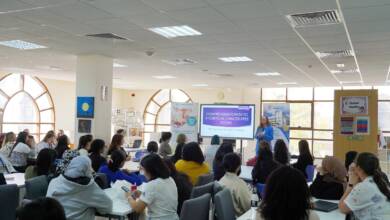The humble date has long been cultivated and consumed as a staple food in the region, and the date palm is considered an emblem of national identity and of sustainability.
The date palm has a long history in the region, which is evident from findings such as the oldest discovered date seeds on Delma Island in Abu Dhabi. Discovered in 1998, the oldest seed goes back to 5110 bC, while the second oldest goes back to 4670 BC, according to radiocarbon tests.
The lack of evidence of corresponding cultivation led experts to believe that the seeds came from traders, and it has been established since that dates and date products were widely trade, and that the tree and the date were revered by many ancient cultures.
However, the date gained the highest regard and recognition within Arab and Islamic cultures. Dates were Prophet Mohammad’s (PBUH) favourite fruit and this is evident in the Quran, which mentions them 26 times, referring to them as “God’s Bounty”. According to an Islamic tradition, the date palm was the “Tree of Life” in the Garden of Eden.
In Emirate culture, the date palm is considered more than just a fruit-producing tree, it is an essential part of the country’s history and heritage. In the past, dates were a principal source of nutrition, while the tree was prized for multiple uses. The wood was used to make ropes, tent poles and for boat building; the leaves for roofs and fencing, and weaving into baskets, fans and mats.
The fruit itself was used to make syrup, while the seeds were used to create soap and cosmetics.
Farmers in the UAE still treat their trees as members of the family, because of this long bond which has helped sustain several generations.
Nutritional Value of the date
The date is very important as quick source of energy for those who are fasting. Eating a few dates about 15 to 20 minutes before a meal raises blood sugar level quickly and thus reduces a feeling of hunger. This protects from excessive food intake and feelings of weakness after a big meal, as there is a delayed delivery of sugar into the bloodstream. For the same reason diabetic patients are advised to eat about three dates after an episode of low blood glucose to correct the levels.
Nutritional Value per 100 grams of dates
The date is nutritious high-energy food, especially when consumed with other foods. The main source of energy is carbohydrates.
Most of these carbohydrates are simple sugars: glucoseand fructose (fruit sugar), and sucrose (white or table sugar).
75% of the fruit is carbohydrate
2.5gm Protein
0.4gm Fat
21gm Water
Caloric Density
One gram of date contains slightly less than three kilocalories.
This makes the date the highest in calorie content per unit weight among fruit.
100 grams of dates (15 to 20 dates) contain about 280 Kcal.
Seven medium dates (about 40g) give 115 kcal. The high energy content makes the date an important food for those who need a high-calorie diet, such as athletes and manual workers.




